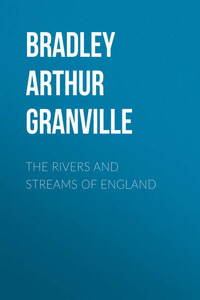IF this little book purported to be a biography in the ordinary sense of the word, the scantiness of purely personal detail relating to its hero might be a fair subject of criticism. But men of the Glyndwr type live in history rather by their deeds, and the deeds of those they lead and inspire. This is peculiarly the case with the last and the most celebrated among the soldier patriots of Wales. Though so little remains to tell us of the actual man himself, this very fact has thrown a certain glamour and mystery about his name even in the Principality. While numbers of well-informed Englishmen are inclined to regard him, so far as they regard him at all, as a semi-mythical hero under obligations to Shakespeare for such measure of renown and immortality as he enjoys, if the shade of Henry the Fourth could be called up as a witness it would tell a very different story. It is at any rate quite certain that for the first few years of the fifteenth century, both to England and to Wales, to friends and to foes, Owen was in very truth a sufficiently real personality. What we do know of him, apart from his work, might well suggest infinite possibilities to the novelist and the poet. It is my business, however, to deal only with facts or to record legends and traditions for what they are worth, as illustrating the men and the time.
Glyndwr is without doubt the national hero of the majority of Welshmen. Precisely why he takes precedence of warrior princes who before his day struggled so bravely with the Anglo-Norman power and often with more permanent success, is not now to the point. My readers will be able to form some opinion of their own as to the soundness of the Welsh verdict. But these are matters, after all, outside logic and argument. It is a question of sentiment which has its roots perhaps in sound reasons now forgotten. There are in existence several brief and more or less accurate accounts of Glyndwr’s rising. Those of Thomas, written early in this century, and of Pennant, embodied in his well known Tours in Wales, are the most noteworthy, – while one or two interesting papers represent all the recent contributions to the subject. There has not hitherto, however, been any attempt to collect in book form all that is known of this celebrated Welshman and the movement he headed. I have, therefore, good reason to believe that the mere collection and arrangement of this in one accessible and handy volume will not be unwelcome, to Welsh readers especially. Thus much at least I think I have achieved, and the thought will be some consolation, at any rate, if I have failed in the not very easy task of presenting the narrative in sufficiently popular and readable guise. But I hope also to engage the interest of readers other than Welshmen in the story of Glyndwr and his times. If one were to say that the attitude of nearly all Englishmen towards Wales in an historical sense is represented by a total blank, I feel quite sure that the statement would neither be denied nor resented.
Under this assumption it was thought well to attempt a somewhat fuller picture of Wales than that presented by the Glyndwr period alone, and to lead up to this by an outline sketch of Welsh history. The earlier part, particularly, of this contains much contentious matter. But in such a rapid, superficial survey as will fully answer our purpose here, there has scarcely been occasion to go below those salient features that are pretty generally agreed upon by historians. The kind manner in which my Highways and Byways of North Wales was received, not only by English readers but by Welsh friends and the Welsh press, makes me venture to hope that my presumption as a Saxon in making this more serious excursion into the domain of Welsh history will be overlooked in consideration of the subject dealt with.
A continuous intimacy of many years with the Glyndyfrdwy region begat a natural interest in the notable personage who had once owned it, and this gradually ripened into a desire to fill, however inadequately, what seemed to me an obvious want. Before venturing on the task I took some pains to ascertain whether any Welsh writer had the matter in contemplation, and so far as information gathered in the most authoritative quarters could be effective it was in the negative. As this was at a time when the Welsh people were considering some form of National memorial to Glyndwr, the absence both in fact and in prospect of any accessible memoir of him overcame what diffidence on racial grounds I had naturally felt and encouraged me in my desire to supply the want.
A full list of the authorities I have consulted in the preparation of this work would, I have reason to understand, be too ponderous a supplement to a volume of this kind. Before noting any of them, however, I must first acknowledge the very great obligations I am under to Professor Wylie for his invaluable and exhaustive history of Henry IV.; not merely for the information contained in the text of his book, but for his copious notes which have been most helpful in indicating many sources of information connected with the persons and events of the time. The following are some of the chief works consulted: Dr. Powell’s translation of Humphrey Lloyd’s










